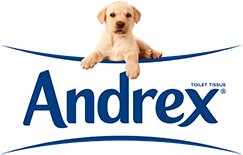Recycling used products is one of the best ways that you can do your bit to help the planet and limit environmental damage. Recycling not only reduces the amount of pollution caused by waste, it also helps to preserve more natural resources for future generations.
Recently more consumers have begun to consider toilet paper rolls' environmental impact or ask “is toilet paper sustainable?” Many now show a preference for eco-friendly toilet paper brands.
And with the average person using around
one hundred toilet rolls per year , it's important that it can be broken down and not contribute to landfill waste.
Difference between recyclable, biodegradable and compostable
With the demand for sustainable products increasing, more brands are starting to redevelop their products and include terms such as recyclable, biodegradable and compostable or their packaging. But what are the differences between these three terms?
Recycled - when used materials are converted into something new.
Recyclable – when a product can be easily recycled to create a new product, usually through doorstep recycling
Biodegradable - something that can be broken down naturally by microorganisms when exposed to the right conditions.
Compostable - made entirely of natural materials and are able to fully decompose without releasing any toxic residue. These can usually be put into garden compost but do check as it can often mean industrial compost. Biodegradable and compostable materials are generally not recyclable as they might contaminate the recycling process as they break down, although work is underway to find solutions for this issue.
Is toilet paper biodegradable?
Technically, all toilet paper is biodegradable as it is made up of natural materials such as wood pulp. But, products classed as biodegradable toilet paper are different to regular toilet tissue. When comparing biodegradable toilet paper and regular paper, you’ll find biodegradable products are able to degrade four times quicker. They are also known to use much less water in the production process than traditional paper brands. Biodegradable paper is often composed of materials like bamboo, hemp, sugar cane or kenaf. While most wet wipes are not biodegradable - and can take over 100 years to disappear from landfill - there are still some sustainable options to choose from, such as
Andrex® Washlets™. Our
Andrex® Washlets™ range is not only biodegradable, but also completely plastic free, made of all natural fibres and, unlike normal wet wipes, they can be flushed down the toilet.
Is toilet paper recyclable?
Kitchen roll and used toilet paper that is made out of recycled materials cannot be recycled again. This is because the material’s fibres are too short and so it will produce poor pulp in the recycling process.
The process of how to make toilet paper from recycled paper is actually quite simple. Recycled paper is mixed in warm water in order to create pulp, the pulp is rolled and flattened to release the water and then bleached with non-toxic chemicals.
Next, the dry pulp is rolled onto a spool and embossed with a pattern. Two sheets of paper are then wound around a cardboard tube and then packaged ready for shipping.
Toilet roll tubes are made of cardboard, so they can easily be recycled with normal household recycling.
The packaging on our products is made from 30% recycled materials, however it is still 100% recyclable. By 2023, the goal is for it to be made from at least 50% recycled plastic.
Andrex® Gentle Clean 4 roll pack of toilet tissue is packed in paper packaging.
Is toilet paper compostable?
Toilet paper is compostable under certain circumstances, as its compostability depends on how the toilet roll has been used.
When using a compost toilet, composting the paper is a big part of its sustainability benefit. But if the toilet paper is contaminated with chemical cleaning agents, pet waste or oil spills then it should not be put in the compost.
Some toilet paper will break down much faster than others, depending on the material it’s made from. Toilet paper that’s made from recycled materials or virgin wood fibres are best for composting as weaker fibres will decompose at a faster rate.
Dyes and bleaches that are used in the process of making the paper can also impact on its compostability, as can the ply and thickness of the paper. You can get toilet paper that is dyed or bleached using eco-friendly methods, for example Andrex® toilet paper is made from non-chlorine gas bleached pulps.




